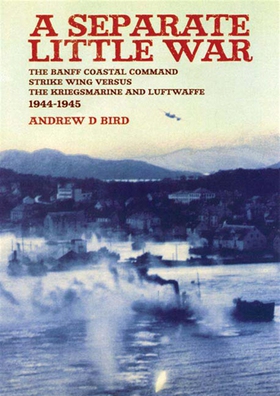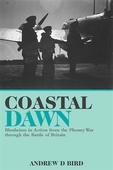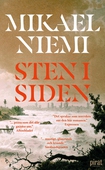
Lägg till önskelistan
A Separate Little War e-bok
Pris
115 kr
Every day for nine months from September 1944 to the end of the war, young British, Commonwealth and Norwegian airmen flew from Banff aerodrome in northern Scotland in their Mosquitoes and Beaufighters to target the German U-Boats, merchantmen and freighters plying along the coast and in the fjords and leads of southwest Norway, encountering the Luftwaffe and flakships every step of the way.
This Scottish strike wing fought in some of the bitterest and bloodiest attacks of the war, all at ve...
E-Bok
115 kr
Pris
Förlag
Grub Street
Utgiven
26 Augusti 2021
Längd
192 sidor
Genrer
Historia & Arkeologi, Samhälle Och Politik, Fackböcker
Språk
English
Format
epub
Kopieringsskydd
Vattenmärkt
ISBN
9781909166707
Every day for nine months from September 1944 to the end of the war, young British, Commonwealth and Norwegian airmen flew from Banff aerodrome in northern Scotland in their Mosquitoes and Beaufighters to target the German U-Boats, merchantmen and freighters plying along the coast and in the fjords and leads of southwest Norway, encountering the Luftwaffe and flakships every step of the way.
This Scottish strike wing fought in some of the bitterest and bloodiest attacks of the war, all at very low level and at close quarters. Their contribution to winning the war was crucial and while the cost in precious lives and equipment was in the same proportion as Bomber Command, they inflicted far greater damage to the enemy in relation to their losses.
With Group Captain The Hon. Max Aitken, DSO DFC as station commander, Banff was eventually to become the base for a total of six Mosquito squadrons (including 235, 248 and 143), together with B Flight of the elite 333 Norwegian Squadron, and would team up on missions with the nearby Dallachy Beaufighter strike wing (404 RCAF, 455 RAAF, 489 RNZAF and 144 Squadrons).
A Separate Little War, then, is a well researched and detailed history of a microcosm of Coastal Command. Supported by many photographs, maps and charts, the vast majority never published before, the author has drawn on the personal accounts of, amongst others, British and Norwegian pilots, ground crew and civilians which augment the official sources, to give a compelling, accurate and fascinating depiction of an aerodrome at war.
It is a subject which will be of great interest and value to the general reader and to those students of the Luftwaffe, Kriegsmarine, RAF and former Commonwealth Air Forces, the Polish Air Force and of maritime air operations during World War Two.





